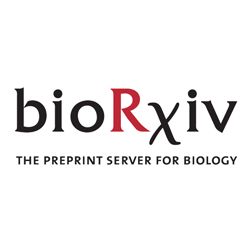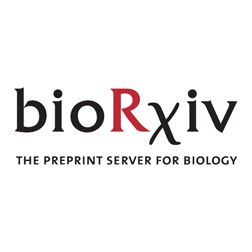Study on 70 lung tumors vs. healthy tissue shows how cancer adapts by boosting antioxidative defenses and lowering advanced glycation end-products. PMID:40461450, Nat Commun 2025, @NatureComms https://doi.org/10.1038/s41467-025-60326-y #Medsky #Pharmsky #RNA #ASHG #ESHG 🧪

Increased antioxidative defense and reduced advanced glycation end-product formation by metabolic adaptation in non-small-cell-lung-cancer patients | Nature Communications
Reactive oxygen species can oxidatively modify enzymes to reroute metabolism according to tumor needs, rendering identification of oxidized proteins important for understanding neoplastic survival mechanisms. Thiol groups are most susceptible to oxidative modifications but challenging to analyze in clinical settings. We here describe the protein and small-molecular thiol oxidation landscape of 70 human lung tumors (and their paired healthy counter parts) and demonstrate that cancer adapts metabolism to increase glutathione synthesis to counteract oxidative stress. Glyoxalases, the key enzymes in the detoxification of methylglyoxal, a byproduct of glycolysis and precursor of advanced glycation end-products, are compromised by oxidation and downregulation. Despite decreased methylglyoxal detoxification capacity, cancers do not accumulate advanced glycation end-products. Since in vitro downregulation or inhibition of GAPDH upregulates glyoxalases, we propose that tumors reduce methyl
doi.org
September 24, 2025 at 2:10 AM
Everybody can reply
1 reposts
5 likes
Excited to share our new paper in ACS Chemical Neuroscience. Through biophysical assays and in vivo studies, we show that glycation alters how α-synuclein drives pathology, leading to earlier symptom onset. This may help explain the higher PD risk in people with diabetes pubs.acs.org/doi/full/10....

Glycated Alpha-Synuclein Assemblies Cause Distinct Parkinson’s Disease Pathogenesis in Mice
Alpha-synuclein (α-Syn) misfolding and aggregation are key drivers of Parkinson’s disease (PD) pathology. Mutations and certain post-translational modifications impact its aggregation propensity and p...
pubs.acs.org
September 13, 2025 at 5:36 AM
Everybody can reply
6 likes
How to Fight Back Against Glycation:
• Limit sugar and refined carbs.
• Avoid high-heat cooking.
• Use spices like cinnamon, garlic, and turmeric, which inhibit AGE formation.
• Antioxidants (ginger, lipoic acid, flavonoids) also protect skin and body.
• Fast!
• Limit sugar and refined carbs.
• Avoid high-heat cooking.
• Use spices like cinnamon, garlic, and turmeric, which inhibit AGE formation.
• Antioxidants (ginger, lipoic acid, flavonoids) also protect skin and body.
• Fast!
December 9, 2024 at 4:25 AM
Everybody can reply
(Nature MS) Correlation between serum advanced glycation end-products and vascular complications in patient with type 2 diabetes http://dlvr.it/TBqm7f #nature #MassSpecRSS

August 12, 2024 at 8:06 PM
Everybody can reply
High glycation of milk protein significantly reduces lysine absorption in healthy adults, impacting its nutritional value.
by van Lieshout GA, Trommelen J (...) van Loon LJ et 7 al. in Am J Clin Nutr #MedSky
📖 read the article:
by van Lieshout GA, Trommelen J (...) van Loon LJ et 7 al. in Am J Clin Nutr #MedSky
📖 read the article:

Protein glycation compromises the bioavailability of milk protein-derived lysine in vivo in healthy adult males: a double-blind randomized cross-over trial
Industrial processing and storage of milk products can strongly increase protein glycation level. Previously, we have reported that ingestion of highl…
www.sciencedirect.com
February 3, 2025 at 10:32 AM
Everybody can reply
2 reposts
5 likes
PXD050780 🚨
Glycosylation and glycation in older T2D adults may contribute to cognitive decline and may serve as early biomarkers.
🚨 New dataset alert! 🚨
Glycosylation and glycation in older T2D adults may contribute to cognitive decline and may serve as early biomarkers.
🚨 New dataset alert! 🚨
May 24, 2025 at 3:00 PM
Everybody can reply
Discover the shocking truth about glycation and its impact on aging! Learn how to recognize common symptoms like fatigue and sugar cravings, and how to transform your health by regulating blood sugar. This podcast reveals the science behind aging and offers a path to feeling your best!
July 5, 2025 at 1:09 PM
Everybody can reply
Prediction of Gemcitabine sensitivity in resectable Pancreatic Cancer using a Glycation Stress Transcriptomic Signature https://www.biorxiv.org/content/10.1101/2025.07.07.663493v1
July 9, 2025 at 10:48 AM
Everybody can reply
1 likes
Introducing Ageless Mobi: A New Approach to Wellness and Anti-Aging in Fitness#Japan#Tokyo#glycation#Tipness#Ageless_Mobi

Introducing Ageless Mobi: A New Approach to Wellness and Anti-Aging in Fitness
Tipness unveils Ageless Mobi, a studio program designed to enhance mobility and combat glycation, launching on October 1st across Japan.
third-news.com
September 29, 2025 at 6:24 AM
Everybody can reply
Advanced #glycation end products and human #diseases | doi.org/10.4081/jbr.... | #openaccess #medsky #AcademicSky

March 26, 2025 at 2:01 PM
Everybody can reply
3 likes
Discover the shocking truth about glycation and its impact on aging! Learn how to recognize common symptoms like fatigue and sugar cravings, and how to transform your health by regulating blood sugar. This podcast reveals the science behind aging and offers a path to feeling your best!
October 22, 2025 at 3:11 AM
Everybody can reply
Industrial processing and storage of milk products can cause sugars to bind to amino acids, a process called protein glycation. Especially the essential amino acid lysine is sensitive to this happening, and it’s thought that this may reduce its absorption and bioavailability.
2/x
2/x

May 20, 2025 at 3:08 PM
Everybody can reply
#glycation #bloodsugar #aging #health #wellbeing #podcast #healthpodcast #healthylifestyle #sugarcravings #SugarRush #BloodSugar #SugarHigh #BloodSugarBalance #Glucose #BloodSugarPalette #SugarDetox #BloodSugarControl #Sugary #BloodGlucose #Sugars #BloodSugarDiet #fatigue
July 5, 2025 at 1:09 PM
Everybody can reply
Glycaemia and albumin glycation rates as fitness mediators in the wild: the case of a long-lived bird https://www.biorxiv.org/content/10.1101/2024.07.22.604617v1

Glycaemia and albumin glycation rates as fitness mediators in the wild: the case of a long-lived bird https://www.biorxiv.org/content/10.1101/2024.07.22.604617v1
Glucose is a vital metabolic component in the functioning of organisms, but it can also bind to biom
www.biorxiv.org
July 23, 2024 at 11:32 PM
Everybody can reply
Why It Matters?
Skin aging isn’t just about looks. Glycation harms collagen, enzymes, and gut health while driving systemic inflammation. Reducing AGEs in your diet slows aging and boosts recovery from cosmetic procedures.
Skin aging isn’t just about looks. Glycation harms collagen, enzymes, and gut health while driving systemic inflammation. Reducing AGEs in your diet slows aging and boosts recovery from cosmetic procedures.
December 9, 2024 at 4:25 AM
Everybody can reply
Advanced Glycation End Products (AGEs) Market – Global Market Size, Share, and Trends Analysis Report – Industry Overview and Forecast to 2032 | Data Bridge Market Research www.databridgemarketresearch.com/reports/glob...
Advanced Glycation End Products (AGEs) Market – Global Market Size, Share, and Trends Analysis Report – Industry Overview and Forecast to 2032 | Data Bridge Market Research
The Global Advanced Glycation End Products (AGEs) market was valued at USD 1.70 Billion in 2024 and is expected to reach USD 2.96 Billion by 2032, growing at a CAGR of 7.2% (2025-2032). Get insights o...
www.databridgemarketresearch.com
April 3, 2025 at 3:12 PM
Everybody can reply
Published a new piece on Biohackers Media, Glycation-Lowering Compounds Extend Mouse Lifespan
#science #longevity #biohacking
#science #longevity #biohacking
Glycation-Lowering Compounds Extend Mouse Lifespan
Study reveals glycation-lowering compounds curb hunger, boost insulin sensitivity, extend lifespan in mice, published in Cell Reports.
biohackers.media
October 14, 2025 at 6:01 PM
Everybody can reply
1 likes
RAGE - "The receptor for advanced glycation end products"
https://bsky.app/profile/ultimape.bsky.wovensoup.com/post/3k5jhsawb4o2c
https://bsky.app/profile/ultimape.bsky.wovensoup.com/post/3k5jhsawb4o2c
"findings show that people living with inflammatory arthritis have a unique gut flora [...] functional effects of these changes on the gut microbiota and found that they affected how well the gut absorbed iron and vitamin B" https://healthnews.com/news/scientists-link-arthritis-to-gut-microbiome/
August 22, 2023 at 4:48 AM
Everybody can reply
(BioRxiv All) A Chemical Mechanistic Path Leads the Way to Cellular Argpyrimidine: Argpyrimidine (APY) is a methylglyoxal-derived advanced glycation end-product (AGE) that has been associated with multiple diseases. As APY formation occurs without an enzyme, it remains… #BioRxiv #MassSpecRSS

A Chemical Mechanistic Path Leads the Way to Cellular Argpyrimidine
Argpyrimidine (APY) is a methylglyoxal-derived advanced glycation end-product (AGE) that has been associated with multiple diseases. As APY formation occurs without an enzyme, it remains exceptionally difficult to pinpoint where APY is likely to be found, both on individual proteins and in cells. In this study, we used a peptide model system and mass spectrometry analysis to investigate the chemical mechanism through which APY forms from methylglyoxal (MGO), a biologically relevant glycating agent. Consistent with other proposed APY formation mechanisms, our results show that that another AGE, tetrahydropyrimidine (THP) is a direct precursor to APY. However, our results rule out previously proposed reductone or oxidative decarboxylation mechanisms. Instead, we show that a formal oxidation step is not required, and that formate, not CO2 is released. We further show the potential for a nearby residue such as Tyr to assist in the APY formation mechanism by acting as a general base. These experiments revealed that phosphorylated Tyr or Ser residues could also promote equivalent levels of APY formation, despite introducing additional negative charges that we previously showed to impede glycation. Guided by these mechanistic insights and newly defined role for phosphorylated residues on glycation substrates, we performed quantitative bottom-up proteomics analysis for MGO-treated cells. Gene ontology analysis for AGE-modified proteins revealed significant enrichment of phosphorylation-related terms (e.g. kinase activity or protein phosphorylation) for APY, while other Arg post-translational modifications did not. Collectively, these data define a chemical mechanistic path to APY and suggest significant crosstalk between cellular phosphorylation and glycation events including APY formation.
dlvr.it
May 31, 2025 at 6:01 AM
Everybody can reply
Effects of beverages and salads on lipid oxidation and glycation during in vitro meat digestion
https://www.diningandcooking.com/2073768/effects-of-beverages-and-salads-on-lipid-oxidation-and-glycation-during-in-vitro-meat-digestion/
Chemicals and enzymes All chemicals and reagents used in this …
https://www.diningandcooking.com/2073768/effects-of-beverages-and-salads-on-lipid-oxidation-and-glycation-during-in-vitro-meat-digestion/
Chemicals and enzymes All chemicals and reagents used in this …

Effects of beverages and salads on lipid oxidation and glycation during in vitro meat digestion - Dining and Cooking
Chemicals and enzymes
www.diningandcooking.com
May 16, 2025 at 8:25 PM
Everybody can reply
The Pathways of Metabolic Disease are:
1 - Glycation
2 - Oxidative Stress
3 - Mitochondrial Dysfunction
4 - Insulin Resistance
5 - Membrane Instability
6 - Inflammation
7 - Methylation
8 - Autophagy
Awareness of the problems dervies healthy solutions
#warriorsover50
1 - Glycation
2 - Oxidative Stress
3 - Mitochondrial Dysfunction
4 - Insulin Resistance
5 - Membrane Instability
6 - Inflammation
7 - Methylation
8 - Autophagy
Awareness of the problems dervies healthy solutions
#warriorsover50

December 29, 2024 at 9:01 AM
Everybody can reply
HIV-1 Tat Upregulates the Receptor for Advanced Glycation End Products and Superoxide Dismutase-2 in the Heart of Transgenic Mice www.mdpi.com/1999-4915/14...

HIV-1 Tat Upregulates the Receptor for Advanced Glycation End Products and Superoxide Dismutase-2 in the Heart of Transgenic Mice
Cardiovascular disorder (CVD) is a common comorbidity in people living with HIV (PLWH). Although the underlying mechanisms are unknown, virotoxic HIV proteins, such as the trans-activator of transcrip...
www.mdpi.com
December 25, 2024 at 11:53 AM
Everybody can reply
2 likes
Here is the link to the latest edition of my health and wellness newsletter, Wellness Wednesday. This month, I discuss The Hidden Danger of Advanced Glycation End Products (AGEs), The Power of Wearable Technology, and Aortic Calcification. Plus, as always, a few healthy recipes.

Wellness Wednesday
Helping you thrive in good health!
open.substack.com
December 18, 2024 at 2:15 PM
Everybody can reply
1 reposts
2 likes
Growth Hormone Excess Drives Liver Aging via increased Glycation stress https://www.biorxiv.org/content/10.1101/2025.01.06.631635v1
January 8, 2025 at 7:02 PM
Everybody can reply

